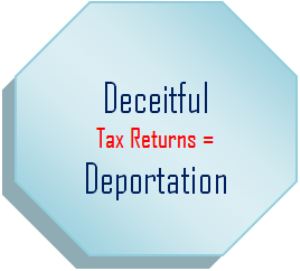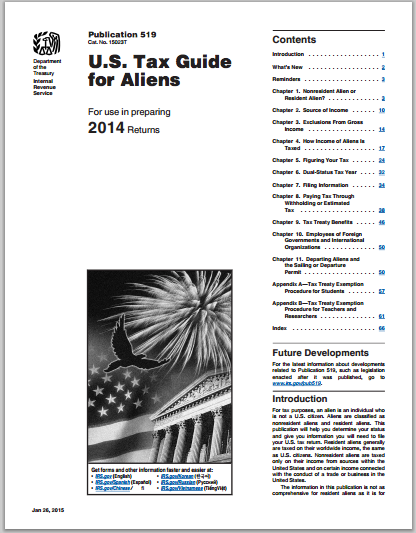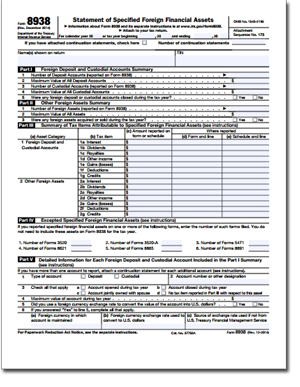Dallas Appeals Officer Reverses IRS Decision
Allows Business Expenses and Ranching Losses for 2011 & 2012 and Abates the 20% Accuracy Related Penalty
 Back in 2014, I represented a Texas couple in connection with an Appeal from an IRS decision disallowing the Taxpayers’ business expenses and losses associated with the Taxpayers’ ranching operations for the tax years 2011 and 2012 as well as the assessment of the I.R.C. § 6662(a) 20% accuracy related penalty.
Back in 2014, I represented a Texas couple in connection with an Appeal from an IRS decision disallowing the Taxpayers’ business expenses and losses associated with the Taxpayers’ ranching operations for the tax years 2011 and 2012 as well as the assessment of the I.R.C. § 6662(a) 20% accuracy related penalty.
The client names have been changed due to confidentiality. The Appeal was successful and resulted in the allowance of 100% of the Taxpayers’ business expenses and losses associated with their ranching operations for the relevant tax years, as well as the abatement of the 20% accuracy related penalty. The Appeal resulted in a total tax savings of approximately $300,000.
The Facts of the Case
Kenneth Johnson* and Pamela Johnson* (the Taxpayers) are residents of the State of Texas with their principal place of domicile located in Brownwood. Mr. Johnson comes from a long line of ranchers and farmers. His grandfather came to Texas in a covered wagon and started raising cotton and cattle. The family tradition continued with his father and uncle and subsequently with Mr. Johnson.
In July 2001 the Taxpayers purchased, a 100 acre property located in Brownwood, Texas. The original property consisted of a 2,650 square foot home, barns, sheds, stock tanks, as well as corrals and a cattle chute. In November of 2002, the Taxpayers purchased the adjoining 120 acres. The Taxpayers subsequently leased an additional 403 Acres. The leased property has three stock tanks, is cross fenced and has corrals for working livestock. All of the foregoing was acquired with the intent of establishing a viable ranching operation, consistent with Mr. Johnson’s rich family history in ranching.
Beginning in 2010 and continuing through 2012, Central Texas experienced a severe drought. Farmers and Ranchers in this area saw their earthen tanks as well as rivers and creeks dry up. In order to survive many ranchers and farmers had to haul water to their livestock. In addition, due to the lack of rainfall, ranchers, including the Johnson’s, were forced to purchase more hay and feed to try and make it through the drought. Ultimately, many ranchers, including the Taxpayers, were forced to mitigate their losses by selling off their livestock. As a result of the drought, ranchers were faced with a shortage of breeding stock available for sale, which in turn, resulted in higher livestock prices. Consequently, ranchers required additional time in order to replenish their herds.
In addition to the Taxpayers’ ranching operations, Mr. Johnson* was employed full-time in the oil and gas industry. The Taxpayer and his wife also owned and operated several other enterprises including a sales and marketing and mud logging business and also owned several rental properties. For the Tax Years 2011 and 2012, the Taxpayers self-prepared and filed their joint Federal income tax returns. For the tax years 2011 and 2012, the Johnson’s Federal income tax returns reflected ranching losses in the amount of $342,326 and $483,705 respectively.
In June of 2013 the Taxpayers’ 2011 and 2012 Federal income tax returns were selected by the IRS for examination. The Johnson’s were not represented during the IRS examination which resulted in the IRS disallowing 100% of the Schedule F (Farming) business expenses and the ranching losses sustained during the years in question. In addition, the IRS assessed the I.R.C. § 6662(a) 20% accuracy related penalty. The predicate for the IRS assessment was based upon the principle that a taxpayer may not deduct expenses and losses associated therewith, where a legitimate business purpose and profit motive is absent. The IRS assessed $102,697 and $145,112 in additional income tax for the respective tax years 2011 and 2012. In addition, the IRS assessed the 20% accuracy related penalty in the amount of $23,963.00 and $29,022.00 for the two years in question.
The IRS auditor provided the Johnson’s with Form 4549 (Income Tax Examination Changes) outlining the proposed changes. Thereafter, the Taxpayers contacted and retained the services of Kathryn J. Earnhardt, a local certified public accountant, for purposes of filing a written request for reconsideration to the Income Tax Examination Changes with the IRS. Ms. Earnhardt’s filed the request for reconsideration, but the IRS determined that it would not alter Form 4549. The IRS response consisted of Letter 692 (Request for Consideration of Additional Findings) and Form 886-A (Explanation of Items).
Mr. and Mrs. Johnson* thereafter contacted me and retained my services to represent the Taxpayers in connection with filing an Appeal with respect to the IRS assessments for 2011 and 2012. The issues presented for Appeal included the disallowance of the Schedule F business expenses, the disallowance of the losses from the Taxpayers’ ranching operations for the years 2011 and 2012 and the assessment of the I.R.C. § 6662(a) 20% accuracy related penalty.
In January 2014, my office prepared and filed a Protest Letter and Form 12203 (Request for Appeals Review) on behalf of the Johnson’s with the IRS Appeals office in Dallas, Texas. A conference was subsequently scheduled with the Appeals office in Dallas for March of 2014.I attended the conference together with the Johnson’s. We met with Mr. Robert Warfield, an attorney with IRS Appeals. During the conference, we discussed the issues presented and the Johnson’s provided credible testimony concerning profit motive in their ranching operations, as well as the circumstances related to the draught. At the conclusion of the conference Mr. Warfield informed the Taxpayers that they were entitled to 100% of the business expenses and ranching losses reflected on Schedule F for the tax years 2011 and 2012 and that those adjustments would be made to the Taxpayers’ account. In addition, Mr. Warfield also informed the Taxpayers that the 20% accuracy related penalty would be abated.
The experience gained from this case is as follows: If you started a business within the last five years and have continued to sustain losses, there is a risk that your returns will be selected for examination and subject to the IRS disallowing the both the business expenses as well as any losses. A self-employed Taxpayer needs to be able to establish that the business is viable as a going concern, and that a clear profit motive exists. Since no two cases are alike, it is important to have credible evidence regarding income patterns in your industry and that your expenses are in line based upon your income. If you have been contacted by the IRS concerning your business expenses and the losses reflected on your Federal income tax returns, you should contact a competent tax attorney to discuss the specific facts of your case, industry profit and loss statistics and the options available to you.
* The clients’ names have been changed for purposes of preserving the privacy of attorney client privilege. The facts of the tax law case are the same.
 report his or her foreign financial accounts.
report his or her foreign financial accounts.
 Serial Tax Return Non-filers.
Serial Tax Return Non-filers.
 on their tax returns in order to secure large refunds to which they are not entitled. To address this trend, the IRS has vowed to heighten scrutiny with the commitment to go after these taxpayers with vigor. As such, you will see increased civil, and in certain cases, criminal penalties being assessed on the perpetrators.
on their tax returns in order to secure large refunds to which they are not entitled. To address this trend, the IRS has vowed to heighten scrutiny with the commitment to go after these taxpayers with vigor. As such, you will see increased civil, and in certain cases, criminal penalties being assessed on the perpetrators. Back in 2014, I represented a Texas couple in connection with an Appeal from an IRS decision disallowing the Taxpayers’ business expenses and losses associated with the Taxpayers’ ranching operations for the tax years 2011 and 2012 as well as the assessment of the I.R.C. § 6662(a) 20% accuracy related penalty.
Back in 2014, I represented a Texas couple in connection with an Appeal from an IRS decision disallowing the Taxpayers’ business expenses and losses associated with the Taxpayers’ ranching operations for the tax years 2011 and 2012 as well as the assessment of the I.R.C. § 6662(a) 20% accuracy related penalty. 




